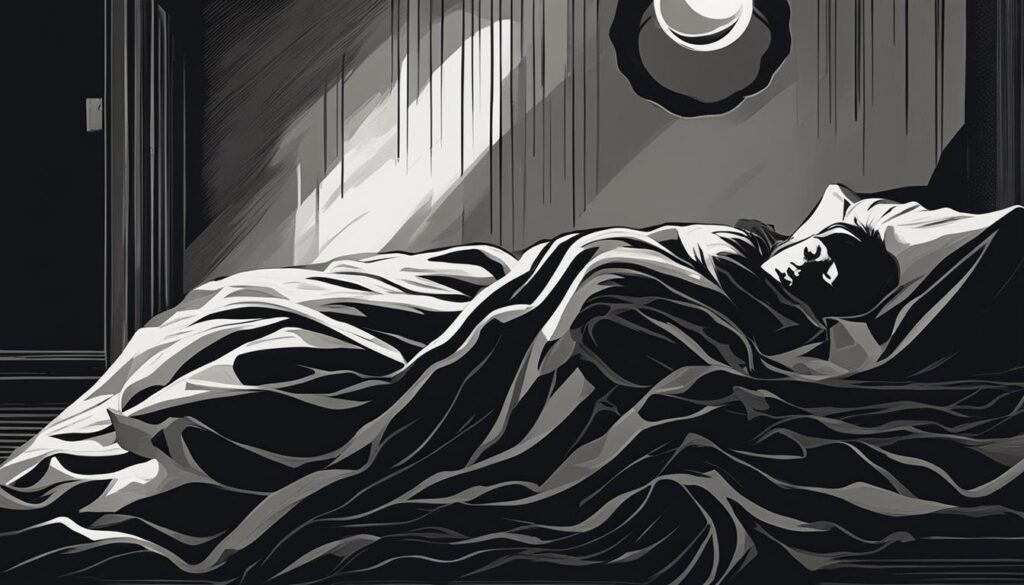If you’ve ever wondered, “why does depression make you tired?” you are certainly not alone. This pervasive sense of exhaustion goes beyond the common conception of depression as simply feeling sad. In fact, the impact of depression on energy levels is profound and multifaceted, affecting the body and mind. It’s not just about lacking physical energy; the fatigue associated with depression can weigh heavily on your psychological state, too.
Investigating the causes of tiredness in depression is crucial because understanding them points us towards finding effective solutions. Yes, it’s complex, but by delving into the biological and emotional underpinnings of this type of fatigue, you can begin to piece together a strategy for rejuvenation. Let’s embark on a journey to uncover why your depression might be robbing you of your vitality, and more importantly, how to reclaim it.
Depression and Fatigue: More Than Just Feeling Down
When discussing the tandem of depression and fatigue, it becomes apparent that this is not just about having a bad day or feeling sleepy after a poor night’s rest. Chronic tiredness and depression create a complex interplay that significantly impacts your daily life in ways that go unnoticed in people without depression. By dissecting this intricate relationship, we reveal the multifaceted challenges it presents, including its pervasive nature and stubborn resistance to simple restorative measures.

The experience of fatigue during depression is distinct in its persistence. Normal tiredness implies recuperation follows physical exertion or missed sleep; conversely, depression-related fatigue defies this pattern. It clings to you even on days devoid of physical tasks and doesn’t ebb away with rest. This type of fatigue can blur your focus, dampen motivation, and shrink your overall quality of life – solidifying the point that it is indeed a serious concern attached to depression.
- Persistent, irrespective of activity levels
- Unrelieved by rest or sleep
- Negatively impacts cognitive function
- Diminishes motivation and drive
“I’ve slept for hours, yet I wake up as if I haven’t slept at all.” This sentiment often echoes the exasperation of those facing depression and fatigue. It marks the departure from typical tiredness to a deeper, more debilitating state.
| Aspect of Life | Impact of Normal Tiredness | Impact of Depression and Fatigue |
|---|---|---|
| Physical Energy | Diminished post-exertion; restored with rest | Consistently low, unimproved by rest |
| Mental Sharpness | Temporarily blunted; recuperates with sleep | Chronic fog, not alleviated by sleep |
| Emotional Resilience | Might dip temporarily | Often reduced, engendering a sense of hopelessness |
| Daily Activities | Temporarily impacted | Consistently disrupted, contributing to social and occupational decline |
Recognizing the gravity of ongoing depression and fatigue is crucial. Getting to the bottom of this persistent state of being worn down can be the catalyst you need to take the first steps toward wellness. It’s about understanding that this isn’t just a fleeting feeling, but a symptom deeply rooted in depression’s grip on your life.
Exploring the Connection Between Depression and Tiredness
The connection between depression and tiredness is a critical subject for those seeking to understand how this mental health condition affects daily energy levels. By examining the psychological factors, neurochemical imbalances, and lifestyle contributions to fatigue, we can begin to unravel the complex tapestry of depression’s influence on our vitality.

Psychological Factors Impacting Energy Levels
It’s crucial to recognize how the mind influences the body when exploring the cause of lifestyle and depression fatigue. Negative thought patterns, such as feelings of worthlessness or hopelessness, can be incredibly draining. When you’re continually processing these heavy emotions, it’s no surprise that your mental reservoirs are depleted, manifesting as physical exhaustion. This mental fatigue can affect every aspect of your life:
- Lowered motivation to engage in physical activity or social interactions
- Heightened stress and anxiety, which further sap your energetic resources
- A pervasive sense of overwhelm that makes it challenging to face daily tasks
- An inability to find pleasure in activities that once brought joy
Depression insidiously whittles away at your energy, leaving you feeling physically drained even when you haven’t exerted yourself.
Neurochemical Imbalances and Your Energy
Neurochemicals, such as serotonin, dopamine, and norepinephrine, play an instrumental role in regulating mood, sleep, and energy levels. In individuals experiencing depression, imbalances in these chemicals can lead to disruptions in the body’s natural rhythms:
- Irregular sleep patterns make it harder to feel rested and energized the following day.
- Misalignment of circadian rhythms contributes to both insomnia and hypersomnia—both of which are counterproductive for maintaining energy.
- An alteration in energy metabolism means that even basic functions can feel exhausting.
Understanding these neurochemical imbalances is key to deciphering the fatigue that feels inseparable from the experience of depression.
Lifestyle Contributors to Tiredness in Depression
A sedentary lifestyle, poor diet, and social isolation can compound the issue of tiredness, creating a feedback loop that reinforces depressive symptoms:
- A lack of physical activity contributes to muscle atrophy and overall weakness, making any physical effort more taxing.
- Isolation can lead to a solitary lifestyle where opportunities for energizing social interactions are minimal.
- Unhealthy eating patterns may deprive the body of essential nutrients required for optimal energy production.
It’s important to investigate how these lifestyle choices interact with the psychological and neurochemical aspects of depression, potentially exacerbating one’s experience of fatigue.
| Factor | Impact on Energy Levels in Depression |
|---|---|
| Psychological Stress | Depletes mental resources, translating to physical fatigue |
| Neurochemical Disruption | Disturbs sleep and circadian rhythms, affecting physical stamina |
| Lifestyle Habits | Poor diet and inactivity weaken the body’s energy systems |
By dissecting these interconnected factors, we start to see that the 4 elements that tie depression and tiredness together are deeply woven into the daily experiences of those with depression. Addressing any one of these aspects can begin to improve one’s sense of energy, but targeting all of them may provide the most comprehensive relief from the relentless fatigue depression brings.
The Vicious Cycle: Exhaustion Worsening Depression
When talking about exhaustion and depression, it’s crucial to address how they feed into each other, creating a relentless loop. This vicious cycle of depression and fatigue has profound implications for those battling depression, where feeling continuously drained of energy can translate into less physical activity and social interaction, thereby increasing depressive symptoms. Breaking free from this cycle often requires more than sheer willpower—it demands recognition, understanding, and strategic intervention.

Have you ever felt that the more tired you are, the less you do, and the less you do, the worse you feel? That’s depression-induced fatigue in action, ensnaring you in a downward spiral. It’s a challenge that can be difficult to overcome, as the fatigue further diminishes the energy you’d need to engage in activities that might actually help alleviate your symptoms of depression.
- Decreased energy leads to reduced activity
- Less activity contributes to a deepening of depressive symptoms
- Intensified depression fuels increasing fatigue
Understanding this cycle is paramount in taking the first stride towards interrupting it. Only by acknowledging the interaction between exhaustion and depression can you start finding effective strategies for breaking free.
Recognizing you’re stuck in the persistent cycle of tiredness and lowered mood is the first step toward seeking and finding relief.
| Stage of Cycle | Description | Example |
|---|---|---|
| Initial Fatigue | Begins with feeling consistently tired despite adequate rest | Waking up exhausted after a full night’s sleep |
| Reduced Activity | Physical and social activities decline due to lack of energy | Opting out of a walk or a coffee with friends |
| Worsening Depression | Diminished participation leads to increased feelings of isolation and sadness | Feeling disconnected and disheartened due to staying in |
| Deepened Fatigue | Depression feeds back into exacerbating the sense of exhaustion | Feeling too drained to even get out of bed |
Now that you’re acquainted with the grim dance between exhaustion and depression, it’s time to contemplate the necessary steps to disrupt this vicious cycle. Whether it’s through professional help, lifestyle changes, or therapeutic treatments, finding your path out of this spiral is essential for recovery.
Reasons for Fatigue in Depression: Identifying Triggers
Delving into the reasons for fatigue in depression is vital, as it can lead to identifying specific triggers that, once addressed, may alleviate the relentless tiredness. One can be empowered with strategies to manage energy levels effectively by recognizing and understanding these triggers. Below, we’ll explore the interactions between physical health, social engagement, and emotional well-being as they play pivotal roles in depression-induced fatigue.
Physical Health and Depression-Induced Fatigue
Your physical health is a foundational aspect crucial to your overall energy. Even as depression casts a shadow, underlying physical conditions should not be overlooked. Conditions like thyroid dysfunction or vitamin deficiencies can significantly contribute to fatigue and are often masked by the overarching symptoms of depression. It is beneficial to consider these physical health related aspects:
- Thyroid imbalance: Hypothyroidism, for instance, can lead to tiredness and depressive moods.
- Vitamin levels: Particularly B12 and D, play a role in energy metabolism and mood regulation.
- Iron deficiency: Anemia can result in fatigue and exacerbate depressive symptoms.
Such concerns emphasize the importance of identifying depression fatigue triggers grounded in physical health. A medical evaluation can not only rule out these conditions but also direct one towards specific treatments that might considerably improve energy levels.
Health issues often coexist with depression, contributing to fatigue. Addressing these correctly can change the entire energy landscape.
Social and Emotional Aspects of Chronic Tiredness
The impact of one’s social environment and emotional health on fatigue is undeniable. Chronic tiredness in depression is often compounded by social/emotional triggers of tiredness. These are the areas where positive changes can foster tangible improvements:
- Support networks: Engaging with friends and family can offer a significant energy boost and mitigate feelings of isolation.
- Emotional stress: Addressing and managing stressors can alleviate the emotional burden and lift some of the heaviness of fatigue.
- Coping skills: Developing healthy emotional coping mechanisms is crucial to reducing the persistent tiredness associated with depression.
At times, the interplay between our social engagements and emotional state can form a complex web that defines our daily energy levels. Improving these areas might require professional help, reflecting on personal relationships, and making positive lifestyle adjustments.

Fatigue in depression can emerge from multifaceted domains in our lives. The following table presents potential factors and their influence on energy levels:
| Depression Fatigue Trigger | Properties | Influence on Energy |
|---|---|---|
| Physical Health Issues | Includes thyroid function, vitamin/mineral deficiencies, and iron levels | Direct impact on bodily functions and energy production |
| Social Environment | Quality of interactions and support structures | Influences mood and stress levels, which are indirectly linked to energy |
| Emotional Stressors | Day-to-day stress, coping skills, and emotional resilience | High emotional stress can lead to both mental and physical exhaustion |
Understanding and identifying depression fatigue triggers—whether they be physical maladies, social deficits, or emotional burdens—is step number 6 in the ongoing journey to rekindle your vitality. In empowering yourself with this knowledge, you are better prepared to take proactive steps that prioritize your healing and manage depression-related fatigue.
Combating Depression-Related Fatigue: Effective Solutions
If you’re grappling with the weight of depression fatigue, you’re likely yearning for some form of relief that can restore your vigor and improve your daily life. The lethargy that shadows depression is not indomitable; there are effective solutions for tiredness in depression that have proven their worth, ranging from lifestyle adjustments to clinical therapies. Delve into these diverse, evidence-based strategies designed to help you in combating depression fatigue and navigate toward a more energized existence.

Lifestyle Adjustments
Adjusting your lifestyle can have a profound impact on your energy levels. Simple yet significant changes can serve as foundations in the fight against fatigue. Experts often recommend the following:
- Regular Physical Exercise: Activity such as walking, yoga, or even light stretching can enhance mood and boost energy.
- Quality Sleep Practices: Establishing a sleep routine and creating a restful environment are key to improving sleep quality.
- Nutrition: A balanced diet rich in nutrients is essential for energy production. Integrating foods high in iron, B vitamins, and omega-3 fatty acids might particularly help in reducing fatigue.
- Mindfulness and Relaxation Techniques: Practices like meditation, deep breathing, or progressive muscle relaxation can help alleviate stress and enhance energy levels.
Small steps in tweaking your daily regimen can lead to significant strides in overcoming the lethargy that depression often imposes.
Therapy Options
Pursuing therapy can be a powerful ally in addressing the psychological elements contributing to your fatigue. Cognitive Behavioral Therapy (CBT), in particular, is renowned for teaching coping strategies that help reframe negative thought patterns which may exacerbate tiredness. Interpersonal therapy and psychoeducation also offer credible avenues for equipping you with the tools needed for emotional and mental endurance.
Medication
Antidepressants can play a pivotal role in balancing the neurochemicals associated with mood and energy. It’s crucial, however, to work closely with your healthcare provider to find the right medication and dosage as some antidepressants may actually increase fatigue. Patience and communication with your doctor are vital in this delicate balance.
Holistic Approaches
Beyond traditional Western medicine, many individuals find solace and energy renewal through holistic therapies. Acupuncture, for instance, has been credited with improving symptoms of depression and fatigue. Similarly, certain supplements and herbs, such as St. John’s Wort or ashwagandha, have been utilized to augment energy levels, but always consult with a professional before starting any new treatment.
Below is a summary table highlighting various interventions, their methods, and effects:
| Intervention | Methods | Effects on Depression Fatigue |
|---|---|---|
| Lifestyle Adjustments | Physical activity, sleep hygiene, balanced diet, mindfulness | Improves sleep, mood, and physical energy |
| Therapy | Cognitive Behavioral Therapy, interpersonal therapy, psychoeducation | Boosts mental energy, enhances coping strategies |
| Medication | Antidepressants prescribed and monitored by healthcare providers | Can regulate neurochemicals to relieve fatigue |
| Holistic Approaches | Acupuncture, herbal supplements, relaxation techniques | May improve overall energy and well-being |
Incorporating these effective strategies into your management plan presents a holistic approach to combating depression fatigue. As you consider these options, remember that what works for one person might not work for another. It’s about finding what resonates with your body and mind to achieve the most effective results. With a firm commitment to action and a willingness to explore, you can find the path that leads to increased energy and improved management of your symptoms of depression.
Conclusion
In the quest to overcome depression fatigue, understanding the intricate bond between your mental health and energy levels is paramount. Throughout this article, we’ve explored the various factors contributing to this pervasive tiredness and uncovered a range of strategies for managing energy with depression. The journey isn’t simple, but it’s laden with hope; with each piece of insight, you’re better equipped to tackle the challenges depression poses to your vigor and zest for life.
Whether it’s identifying and addressing underlying physical health concerns, adjusting your lifestyle habits to foster better sleep and nutrition, or seeking therapy to reframe negative thought patterns, the steps towards mitigating fatigue are diverse and personalized. Remember, the synergy of comprehensive strategies often yields the most promising impacts when it comes to rejuvenating your mental and physical state.
As you venture forward, take solace in the knowledge that your efforts to understand and disrupt the fatigue-depression cycle are not in vain. With perseverance and a proactive approach, managing your energy levels is achievable, allowing you to step into a brighter, more animated chapter of your life. Remember, you have the strength and the tools to not only face depression fatigue but to emerge victorious in your journey toward wellness.
FAQ
Q: Why does depression make you tired?
A: Depression affects energy levels by impacting the psychological and physiological functions of your body. This can include disruptions in neurochemicals that regulate mood and sleep, persistent negative thoughts that drain mental energy, and the physical toll of stress on the body. Together, these factors contribute to the overwhelming tiredness often experienced with depression.
Q: What differentiates depression-related fatigue from normal tiredness?
A: Depression-related fatigue is a persistent type of tiredness that doesn’t necessarily result from physical exertion and isn’t relieved by rest. It affects your ability to concentrate, decreases motivation, and can significantly impair your daily functioning and quality of life. It’s a deeper, more chronic state of exhaustion that’s directly connected to the mental health condition.
Q: How do psychological factors contribute to the tiredness experienced in depression?
A: Psychological factors such as negative thought patterns, chronic stress, and decreased motivation can deplete mental resources, leading to feelings of fatigue. These factors can make even basic tasks feel overwhelmingly exhausting and contribute to a general sense of physical tiredness.
Q: Can neurochemical imbalances really affect my energy?
A: Absolutely. Imbalances in brain chemicals like serotonin, dopamine, and norepinephrine, which are common in depression, can disrupt your sleep patterns, circadian rhythms, and even your body’s energy metabolism. This can lead to insomnia, hypersomnia, or non-restorative sleep, all of which can leave you feeling drained and fatigued during the day.
Q: How do lifestyle factors contribute to fatigue in people with depression?
A: Individuals with depression may experience a sedentary lifestyle, poor nutrition, and social isolation, which can all exacerbate feelings of tiredness. The lack of physical activity, unhealthy diet, and lack of engaging social interactions create a feedback loop that further drains energy and makes it more difficult to combat depressive symptoms.
Q: Why can exhaustion actually make my depression worse?
A: Exhaustion can create a vicious cycle where you have less energy to engage in activities, leading to increased feelings of worthlessness or hopelessness—core symptoms of depression. This can reduce your motivation, making it harder to take action towards recovery, thus deepening depressive symptoms even further.
Q: What physical health issues should be considered when dealing with depression-induced fatigue?
A: When grappling with depression-induced fatigue, it’s important to consider if there are any concurrent physical health issues such as anemia, thyroid problems, or vitamin D deficiency that could be affecting your energy levels. Consulting with a healthcare provider can help identify and address these conditions, which can make a significant difference in managing fatigue.
Q: How do my social and emotional environments impact my experience of tiredness in depression?
A: Your social and emotional environments play a significant role in your mental health and can either mitigate or exacerbate fatigue. Supportive social interactions and networks can provide a buffer against depression, while emotional stressors from strained relationships or isolation can increase tiredness. Finding ways to manage these aspects of your life can be crucial in dealing with chronic tiredness linked to depression.
Q: What are some effective solutions for managing fatigue caused by depression?
A: Several strategies can help manage fatigue due to depression, including establishing a consistent sleep routine, engaging in regular physical activity, following a balanced diet, and seeking psychotherapy or counseling. Medications prescribed by a mental health professional may also be effective. Additionally, holistic approaches, like mindfulness practices and yoga, can help balance your energy levels and improve overall well-being.


